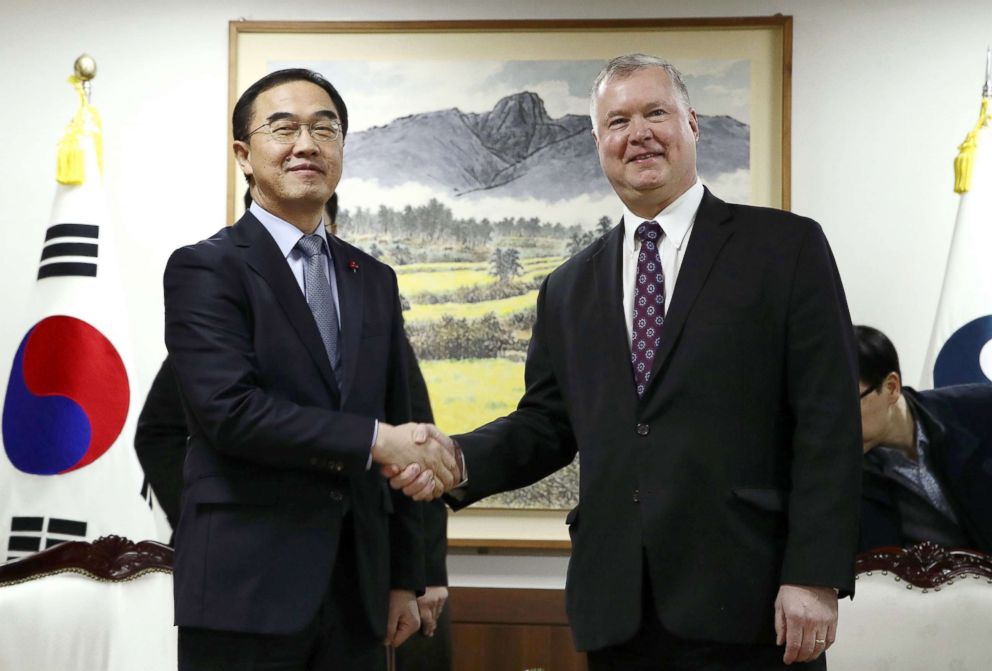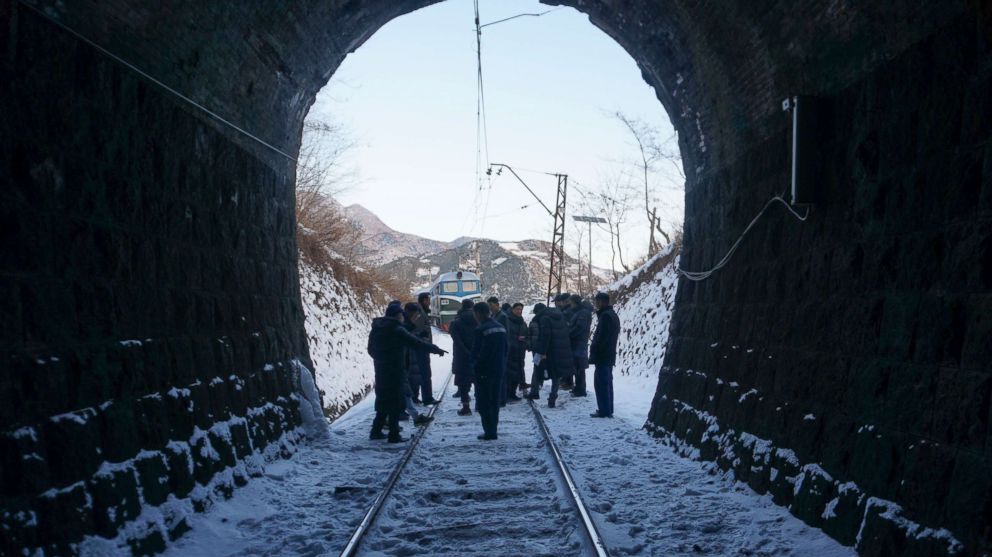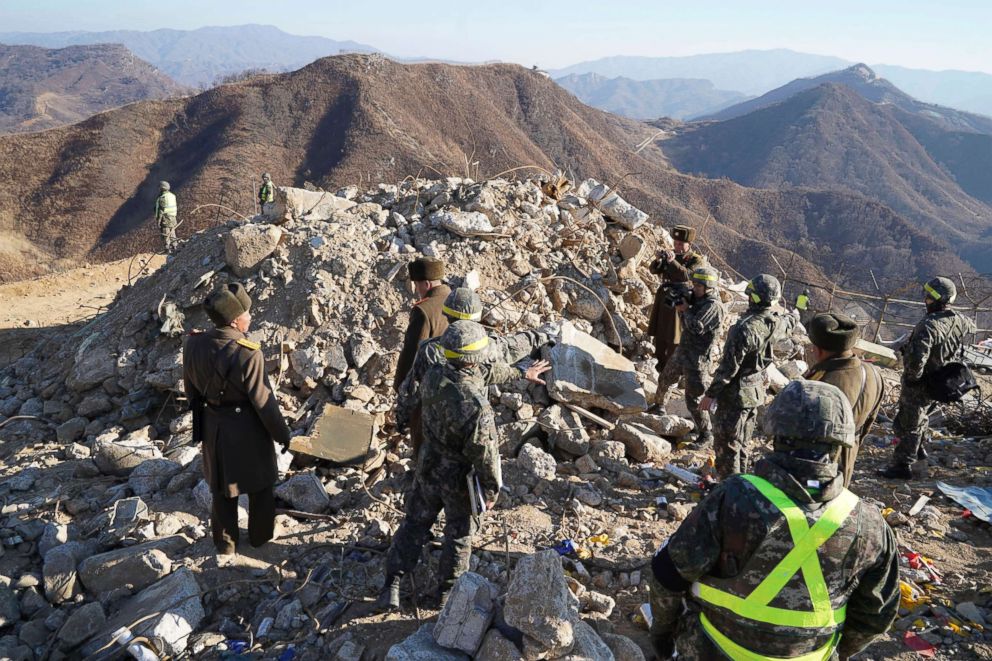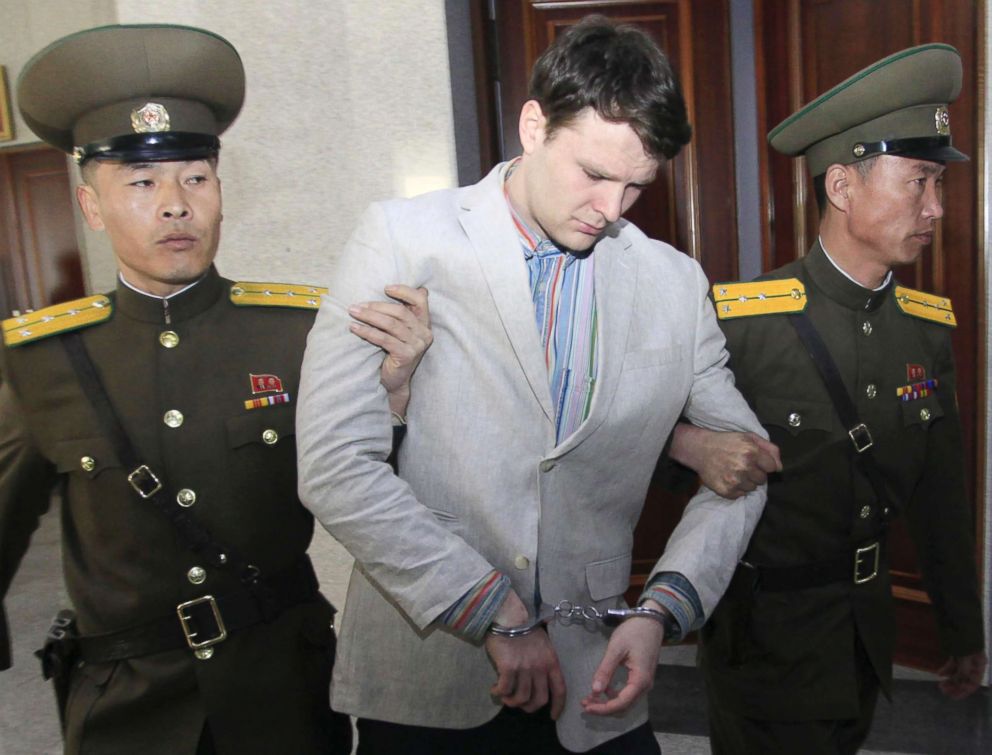Pence canceled North Korea human rights speech, with Trump administration concerned about state of nuclear talks
Nuclear talks with the regime have been stalled for months.
Vice President Mike Pence was expected to give a speech on North Korea's human rights abuses last week, adding firepower to an announcement of new sanctions and the release of a report on dictator Kim Jong Un's brutal rule. But the speech was scrapped amid tensions in U.S.-North Korean talks over the regime's nuclear weapons program.
An official in Pence's office said the cancellation was because of a scheduling conflict. But another source familiar with the plans said it was in part because of concerns about angering or alienating North Korea and further derailing nuclear talks.
Human rights groups are concerned that it's another sign the administration is easing some of the pressure on the regime for its human rights abuses. While none of the sanctions have been lifted -- and new ones were added on three top officials last Monday -- the State Department said this week they will review restrictions on humanitarian aid into North Korea and the ban on all U.S. citizens traveling to the country.
Secretary of State Mike Pompeo denied that meant "relaxing the economic sanctions campaign. Nothing could be further from the truth," he told NPR Thursday. A spokesperson for the department declined to comment.
But the administration has also signaled nuclear talks are "our priority," as the State Department said in October. Additionally, President Donald Trump has repeatedly praised Kim Jong Un and said the two "fell in love" at their Singapore summit in June.
"There is wonderful potential for great economic success for" North Korea, Trump tweeted one week ago. "Kim Jong Un sees it better than anyone and will fully take advantage of it for his people."
But Kim cares little for the North Korean people, according to reports by the United Nations, the State Department and human rights groups. He rules over a brutal, oppressive regime that runs prison camps, conducts extrajudicial killings, uses forced labor, rape and starvation as weapons and censors all religious and political expression and foreign media, the reports concluded.
Trump's tweet also said "We are doing just fine!" on nuclear talks, but in reality they have been at a stalemate for months.
North Korea's chief nuclear negotiator Kim Yong Chol canceled a day of meetings with Pompeo in New York last month and that meeting has yet to be rescheduled. And after four months on the job, Pompeo's special representative for North Korea Stephen Biegun still has not met his North Korean counterparts for the working-level meetings he is supposed to lead.

Both Pompeo and Biegun's talks were supposed to lay the groundwork for a second summit between Kim and Trump. Instead, Biegun is in Seoul this week to ensure that the U.S. and its ally South Korea are on the same page as President Moon Jae-in pushes for greater inter-Korean relations. There's concern that the South is moving too fast for the U.S., with new economic projects and reopened rail lines.
Still, Pompeo is expressing optimism, saying Thursday he's "hopeful" that the two leaders will meet in early 2019 to "make even further progress on taking this threat" of North Korea's nuclear arsenal away.
While North Korea has not conducted a ballistic missile or nuclear test in over a year, the country has also taken no steps to dismantle its nuclear weapons program or shared details of it with the U.S. North Korea has taken steps to dismantle an engine test site and a nuclear test site, but international inspectors have not been permitted to enter the country to verify those actions, more than two months after Pompeo said they would be "as soon as we get it logistically worked out."

Since the summit, experts have warned consistently that North Korea would never unilaterally disarm, as the U.S. expects it to. A fierce commentary from North Korean state media released Thursday underscored that.
The piece said Pompeo and the U.S. have misrepresented what Kim agreed to in Singapore, calling the U.S. definition of "denuclearization" -- North Korea dismantling its nuclear weapons program, in exchange for guaranteed security and economic relief -- "something aghast."
Instead, it demands the U.S. "completely remov[e] the nuclear threats of the U.S. to the DPRK" before North Korea would get rid of its "nuclear deterrence." That means removing U.S. forces from "both the north and south of Korea and also from the surrounding areas," like Japan -- something the U.S. has also long opposed.
"This is what the U.S. unknowingly signed up to when it agreed to changing the relationship and denuclearizing the entire Korean peninsula," said David Maxwell, a senior fellow with the foundation for the Defense of Democracies. "The North did not actually agree to unilateral dismantlement of its nuclear program which is what the U.S. and the international community demands."
The statement followed another on Dec. 16 that warned that Pompeo and the State Department are "bent on bringing the DPRK-U.S. relations back to the status of last year which was marked by exchanges of fire" and called its maximum pressure campaign of "anti-DPRK sanctions and pressure and human rights racket" the "greatest miscalculation" that "will block the path to denuclearization."
There's growing concern that given the deadlock, the administration is willing to agree to some of those steps in order to move nuclear talks forward -- especially by easing pressure on human rights.

In addition to Pence's speech, critics point to the administration's failure to win enough votes for a United Nations Security Council session on the regime's abuses, as the U.S. mission had for the last five years.
"Unfortunately, the message this administration is sending is that it sees diplomacy and human rights as opposing forces," said Francisco Bencosme, Asia Pacific advocacy manager for Amnesty International. "The failure to raise North Korea human rights issues at the U.N. Security Council, the lack of a formal roll-out on the sanctions announcement or an articulation of a North Korea human rights strategy compound this administration's North Korea policy."
A spokesperson for the U.S. mission to the U.N. told ABC News the U.S. is looking to hold the meeting in 2019 and "remains deeply concerned with the human rights situation in North Korea."
In October, the State Department declined to say whether Pompeo had raised human rights with Kim directly and argued that denuclearization was the priority. Spokesperson Heather Nauert said the U.S. "is very clear about the concerns that we have, not just about North Korea but many countries, frankly, around the world and countries that can do a lot better. Our priority in North Korea, though, right now is denuclearization."

In a reminder of the regime's cruelty, the family of Otto Warmbier was in court Wednesday for their lawsuit against North Korea for torturing and killing their son.
Warmbier died in June 2017 after being arrested and held by North Korea for allegedly stealing a propaganda poster in January 2016. The 22-year-old was released and returned to the U.S. with severe brain damage. He died days later.
North Korea has denied torturing him, but the Warmbiers are suing in federal court in Washington for more than $1 billion, according to The Associated Press.
ABC News' Tara Palmeri contributed to this report.




